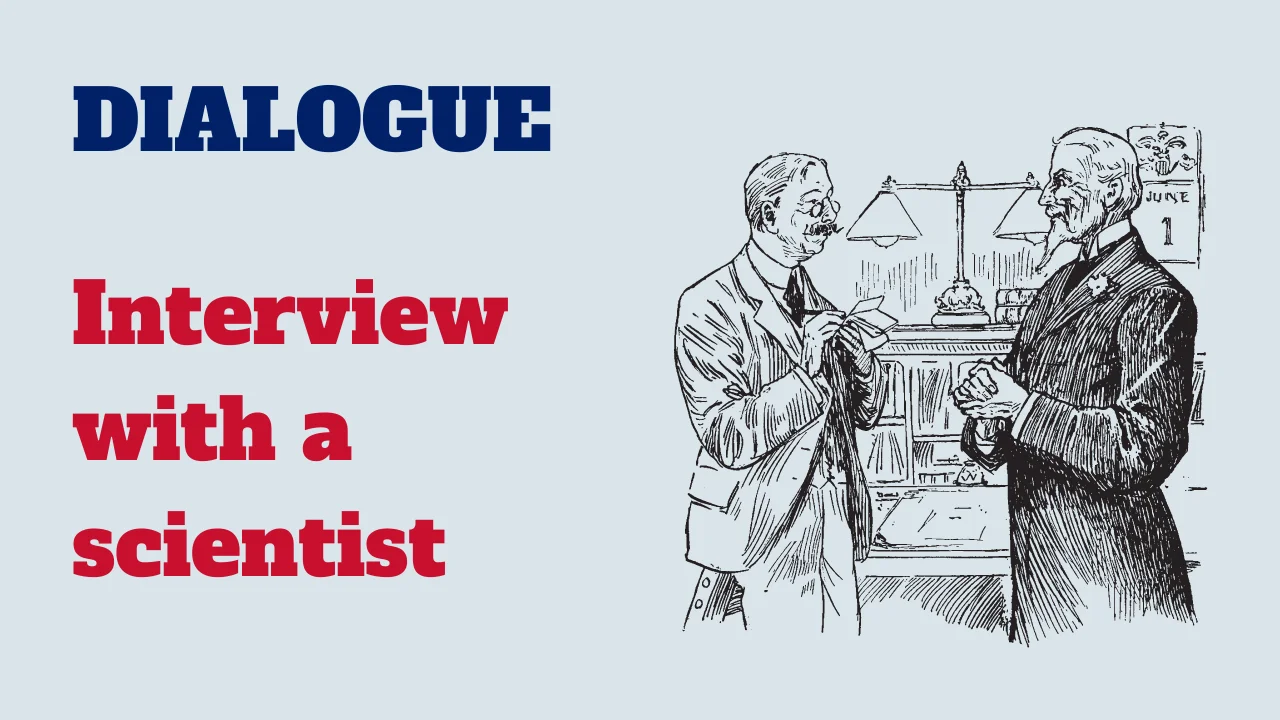Start a journey into the world of scientific inquiry with this interview. Whether discussing groundbreaking discoveries, research methodologies, or the impact of science on society, this conversation with a scientist will help you build your vocabulary related to scientific exploration and innovation.

Dialogue: Interview with a scientist
Interviewer: Good morning, Dr. Smith. Thank you for joining us today for this interview.
Dr. Smith: Good morning. It’s my pleasure to be here. Thank you for having me.
Interviewer: Let’s start by discussing your current research projects. What are you currently working on, and what are your areas of focus?
Dr. Smith: Currently, my team and I are studying the effects of climate change on marine ecosystems. We’re particularly interested in understanding how rising sea temperatures and ocean acidification impact coral reef communities.
Interviewer: Fascinating. Can you tell us more about your research methodology and the tools you use to collect data?
Dr. Smith: Sure. We employ a combination of field observations, laboratory experiments, and mathematical modeling to study coral health, biodiversity, and ecosystem dynamics. We use various instruments such as underwater cameras, water quality sensors, and genetic analysis techniques to gather data.
Interviewer: That sounds like a comprehensive approach. How do you see your research contributing to our understanding of climate change and its effects on marine environments?
Dr. Smith: Our research aims to provide insights into the complex interactions between environmental stressors and coral reef resilience. By understanding how corals respond to changing conditions, we can develop strategies for conservation and management to mitigate the impacts of climate change on these fragile ecosystems.
Interviewer: That’s incredibly important work. How do you envision the findings of your research being applied in real-world scenarios?
Dr. Smith: Our research findings can inform policymakers, resource managers, and conservation organizations in making evidence-based decisions to protect coral reefs and the valuable services they provide, such as coastal protection, fisheries, and tourism. Ultimately, our goal is to contribute to the preservation of marine biodiversity and the sustainability of coastal communities.
Interviewer: It’s clear that your research has significant implications for both environmental conservation and human well-being. Before we conclude, can you share any upcoming projects or initiatives that you’re excited about?
Dr. Smith: We’re currently collaborating with international partners on a large-scale expedition to study coral reef resilience across different regions. This interdisciplinary effort will allow us to gain a more comprehensive understanding of the global impacts of climate change on marine ecosystems.
Interviewer: That sounds like an exciting endeavor. Thank you once again, Dr. Smith, for sharing your insights and expertise with us today. We look forward to following your research and its contributions to scientific knowledge and environmental stewardship.
Dr. Smith: Thank you for the opportunity to discuss my work. It’s been a pleasure.
Explore the frontiers of scientific research with this interview. Practice your English language skills while discussing research methodologies, environmental conservation, and the societal impacts of scientific discoveries. Whether delving into the intricacies of coral reef ecology or envisioning the application of scientific findings in real-world scenarios, this conversation provides a practical scenario for language learners to engage in discussions on scientific exploration and innovation. Happy learning!



